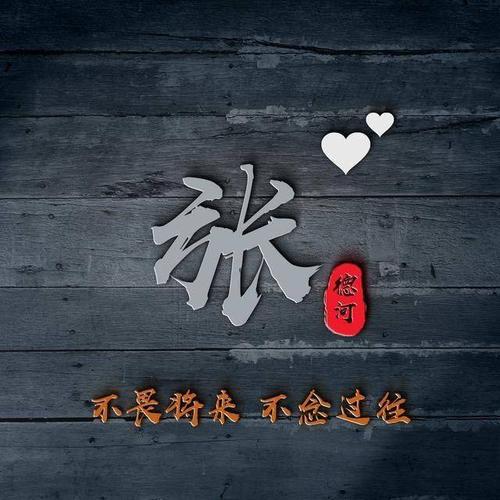- A+

考向一 现在完成进行时
1. 现在完成进行时的定义
现在完成进行时表示某动作从过去某个时间开始,一直延续到现在,并且还有可能持续下去。
We have been waiting for him for two hours.
2. 现在完成进行时的结构
have/has been + doing
3. 现在完成进行时所用的时间状语
this month/week/year, these days, recently/lately, in the past few+时间段, since +时间点, for+时间段。
They have been building the bridge for two months.
They have been planting trees this month. 这个月他们在植树。
4. 现在完成进行时的用法
(1)表示动作的延续
The Chinese have been making paper for two thousand years. 中国有2, 000年的造纸历史。(动作还将继续下去)
I have been learning English since three years ago. 自从三年前以来我一直在学英语。(表示在说话时刻之前刚刚结束的动作)
We have been waiting for you for half an hour. 我们已经等你半个钟头了。(动作不再继续下去)
★ 有些现在完成进行时的句子等同于现在完成时的句子。
They have been living in this city for ten years.
They have lived in this city for ten years. 他们在这个城市已经住了10年了。
I have been working here for five years.
I have worked here for five years. 我在这里已经工作两年了。
★大多数现在完成进行时的句子不等同于现在完成时的句子。
I have been writing a book. 我一直在写一本书。(动作还将继续下去)
I have written a book. 我已经写了一本书。(动作已经完成)
They have been building a bridge. 他们一直在造一座桥。
They have built a bridge. 他们造了一座桥。
★表示状态的动词不能用于现在完成进行时。
I have known him for years. 我认识他已经好几年了。
I have been knowing...(×)
★ 这类不能用于现在完成进行时的动词还有:love爱, like喜欢, hate讨厌等。
常见考法:
1. 现在完成进行时的基本用法;
2. 现在完成进行时和现在完成时的区别;
3. 现在完成进行时和其他时态的搭配。
1. 现在完成进行时的构成记忆不清;
2. 不能准确区分现在完成进行和现在完成时的区别;
3. 时态搭配上出现错误。
【疑难辨析】
现在完成进行时和现在完成时的辨析:
(1)现在完成进行时可以表示动作的重复,而现在完成时一般不表示重复性
Have you been meeting him recently? 你最近常和他见面吗?
Have you met him recently? 你最近见到过他吗?
(2 )现在完成进行时有时含有感情色彩,而现在完成时一般是平铺直叙
I have been waiting for you for two hours. 我一直等了你两个小时。(可能表示不满)
I have waited for you for two hours. 我等了你两个小时。(说明一个事实)
(3 )现在完成进行时强调动作,而现在完成时强调结果
Who has been eating the oranges? 谁一直在吃这些桔子呀?(还剩余一些)
Who has eaten the oranges? 谁把桔子吃光了?(强调吃得一个不剩)
考向二 过去完成进行时
1. 构成:过去完成进行时是由" had been +现在分词"构成。
She had been suffering from a bad cold when she took the exam. 她在考试之前一直患重感冒。
Had they been expecting the news for some time? 他们期待这个消息有一段时间了吧?
2. 用法:
(1)表示过去某一时间之前一直进行的动作。
过去完成进行时表示动作在过去某一时间之前开始,一直延续到这一过去时间。和过去完成时一样,过去完成进行时也必须以一过去时间为前提。过去完成进行时也是一个相对的时态, 上下文中须有明示或暗示的作为参照的过去的时间。
I had been looking for it for days before I found it. 这东西我找了好多天才找着。
They had only been waiting for the bus a few minutes when it came. 他们只等了几分钟车就来了。
(2)表示反复的动作。
He had been mentioning your name to me. 他过去多次向我提到过你的名字。
(3)过去完成进行时还常用于间接引语中。
The doctor asked what he had been eating. 医生问他吃了什么。
I asked where they had been staying all those days. 我问他们那些天待在哪儿。
(4)过去完成进行时之后也可接具有"突然"之意的 when从句。
I had only been reading a few minutes when he came in. 我刚看了几分钟他就进来了。
She’ d only been reviewing her lessons for a short while when her little sister interrupted her. 她温习功课才一会儿,她妹妹就打断她了。
考向二 将来完成进行时
1.将来完成进行时的用法
将来完成进行时表示某一动作从某一时间开始一直延续到将来某一时间(即说话者人提及的时间),是否继续下去,要视上下文而定。如:
By this time next week, I will have been working for this company for 24 years.
到下星期此刻,我已经为该公司干了24年了。
If we don’t hurry up the store will have been closing before we get there.
咱们若不快一点儿,等我们到了那儿,店门就会关了。
2.将来完成进行时的构成
将来完成进行时由“will / shall have been+现在分词”构成。
By the end of this year he’ll have been acting for thirty years. 到今年年底他当演员就满30年了。
I shall have been working here in this factory for twenty years by the end of the year.
到今年年底,我在这个工厂工作就有20年了。
3.将来完成进行时连用的时间状语
与将来完成进行时连用最多的时间状语时是“by+将来时间”,见上面的例子。当然除“by+将来时间”外,连用其他的时间状语也是可能的。如:
He will have been working all day. 他整天将都在工作。
She will have been having treatment all her life. 她将终生受到治疗。
I’ll have been teaching for thirty years this winter. 到今年冬天我就已任教三十年了。
4.将来完成进行时的情态意义
“will / shall have been+现在分词”结构除表示将来完成进行时外,有时其中的will 也可能是情态动词,具有情态意义,比较表示推测或猜想等。如:
They will have been having a holiday yesterday. 他们昨天大概是在度假。
You’ll have been wondering all this time how my invention works.
我想你这些时候一直想知道我的发明怎样会行得通的。
5.将来完成进行时用于状语从句的变体
正如我们通常要在条件状语从句和时时间状语从句中用一般现在时代替一般将来时以及用现在完成时代替将来完成时等一样,如果因语义的需要,我们需要在条件状语从句和时时间状语从句中使用将来完成进行时,那么我们通常要用现在完成进行时代替将来完成进行时。如:
I’ll have finished in the bathroom in a few minutes. 我一会儿就用完浴室了。
As soon as I have finished I’ll give you a call. 我一完事儿,就给你打电话。返回搜狐,查看更多




